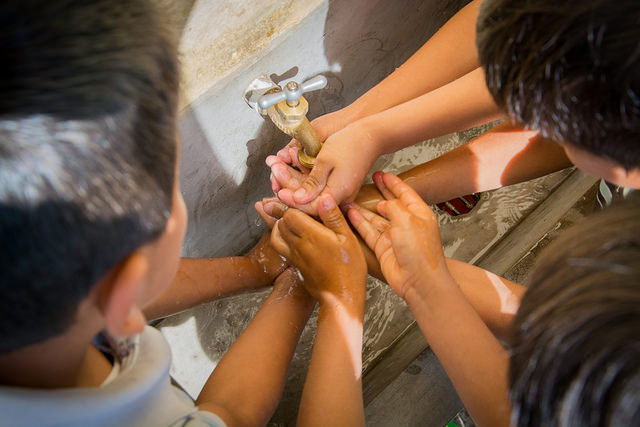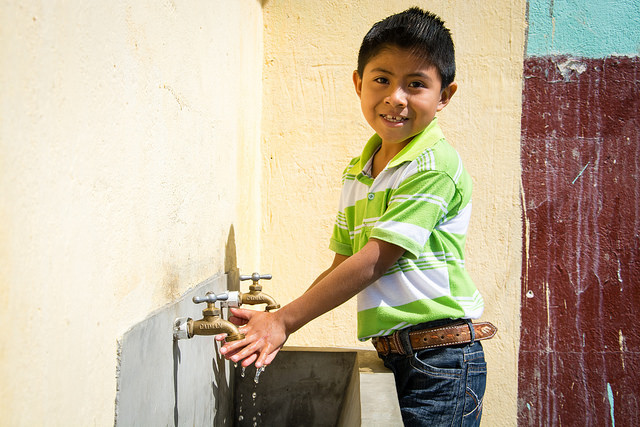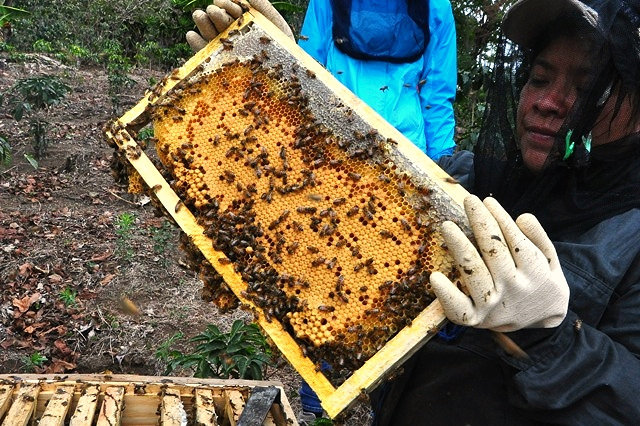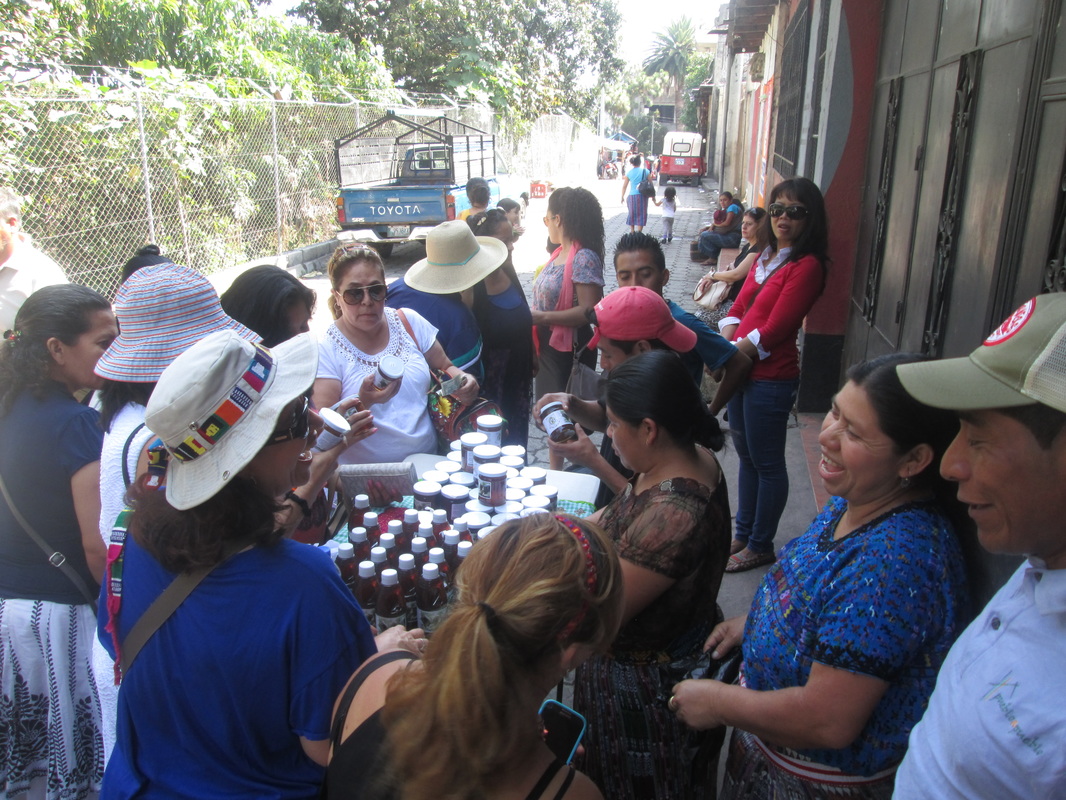Chacayá es una comunidad rural donde la pobreza se siente, con limitado acceso al transporte y escasos recursos educativos. Pero a través de una colaboración entre el Cocode, la Alcadia Auxiliar, Pueblo a Pueblo y la fundación ECOM, se ha construido una Escuela Satelital que expande las oportunidades económicas futuras de la comunidad y también actúa como una ventana al mundo.
En la Escuela Satelital existen una variedad de cursos en línea dando la oportunidad de aprender en diferentes temáticas: agricultura, mecánica, inglés, matemáticas, negocios, diseño de joyas en mostacilla, entre otras. Los estudiantes que completan un curso obtienen diplomas certificados por la Universidad de Monterrey en México.
Los estudiantes, quienes la mayoría nunca en sus vidas han visto una computadora, están emocionados al usar esta nueva tecnología. Al mismo tiempo los profesores de las escuelas oficiales están planeando aprovechar la Escuela Satelital para reforzar las lecciones que enseñan a sus estudiantes en clase.
Evidentemente habrá obstáculos que superar. “Hay un nivel muy alto de analfabetismo en Chacayá, especialmente en las mujeres,” dijo Bárbara Sosof, consultora de Pueblo a Pueblo para la coordinación de este proyecto. “Hay la idea [entre la gente] de que si no puedes leer o escribir, no puedes usar una computadora. Pero no sé si es la verdad”.
“Imagínate un niño de tres años. No puede leer ni escribir pero conoce como usar un celular. En esta manera, la tecnología puede ser un recurso de aprendizaje para reforzar el alfabetismo” comenta Bárbara.
También el idioma podría verse como un obstáculo, ya que la mayoría de residentes de Chacayá hablan el idioma maya T’zutujil, pero las clases se desarrollaran en Español. Por eso, la Escuela Satelital cuenta con dos tutores originarios de Chacayá para apoyar a los estudiantes en sus clases, especialmente con la traducción de Español a T’zutujil.
Este proyecto ha sido posible gracias a la Fundación ECOM, una organización estadounidense sin fines de lucro. La organización fue fundada en 2006 para mejorar las vidas de las personas relacionadas con la producción de café y otros productos, y proveer fondos a proyectos que respondan a las necesidades de salud, educación y vivienda de los productores.
Pueblo a Pueblo y la Fundación ECOM han colaborado para traer la primera Escuela Satelital a Guatemala, siguiendo escuelas exitosas ya en México y El Salvador.
.............................................................................................................................................................
On the shores of Lake Atitlan, tucked away at the tip of an inlet and nestled into the surrounding mountains, sits the town of Chacayá. Its residents are T’zutujil Maya, who depend on coffee and the production of a beaded jewelry, called mostacilla, for their livelihood.
Chacaya is a rural community with widespread poverty that has limited access to transportation and most educational opportunities. However, thanks to a partnership between the Chacaya Development Council, Pueblo a Pueblo and ECOM Foundation, a recently completed internet satellite school promises to broaden economic opportunities and serve as a window to the wider world.
The school, which has been certified through the Universidad Tecnico de Monterrey Mexico, is making it possible for all community members – adults and students alike – to attend a variety of classes, ranging from agriculture to mechanics, English to mathematics, and business management to even a mostacilla design course that can improve the quality of the community’s handiwork.
Students, majority of whom have never seen a computer before, are eager to use this new technology. While teachers from the two local primary schools already have plans to use the computer lab as a way to reinforce the lessons they teach in class.
Despite the excitement, the organizers don’t expect everything to be easy. “There are high levels of illiteracy in Chacayá, especially among women,” said Barbara Sosof, a consultant for Pueblo a Pueblo who coordinated the lab’s implementation. “The general thought is that if you can’t read or write, then you’re less likely to use a computer but I don’t know if that’s true.”
“Look at a small child,” she said. “Many are too young to read or write, but they all quickly learn how to use a cellphone. In that way, the lab can be used as a learning tool to reinforce literacy.”
Anticipating that language could be another obstacle to success, the organizers have hired two former teachers as lab technicians. In addition to their normal responsibilities, they have been trained to translate Spanish classes into T’zutujil, the Mayan language spoken by 99% of Chacaya’s residents.
This project was launched by ECOM Foundation, the non-profit arm of the second-largest coffee trading entity in the world. The organization was founded in 2006 to improve the lives of people who produce coffee and other soft commodities through projects that address healthcare, education, and housing needs.
Pueblo a Pueblo and ECOM Foundation have collaborated to bring the first internet satellite school to Guatemala, following successful implementation of similar schools in small, coffee-producing communities in Mexico and El Salvador.





 RSS Feed
RSS Feed